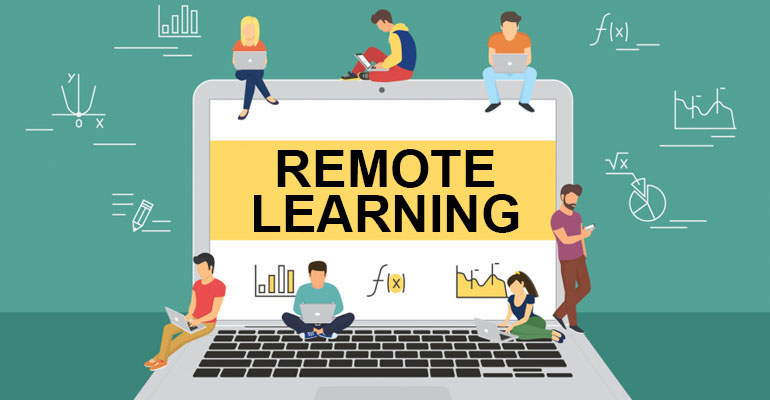Remote learning refers to acquiring education through not being physically available at the host institution as a full-time learner. Lecturers can confer knowledge to students on online platforms and carry out continuous assessments online under this arrangement. Other forms of correspondence, like email communication, also aid in transferring skills to students, especially during class projects and research work. Ideally, remote learning enables continuous education among working professionals in today’s fast-paced world, saves time and money, predisposes students to immense online networking, and gives them more control to learn at their own pace.
Benefit 1 – Education Continuity
Remote learning enables students to focus on jobs and other opportunities alongside their education. The overly flexible nature of this learning modality is convenient for working professionals hoping to advance their education. Moreover, learners can assign their weekends for studies, handle other responsibilities during weekdays, and still be on the best path to upskill. And in case they fail to meet the deadline, they can always turn to essay writing services like this website for help. Generally, the seamless continuity of education as a benefit associated with this mode of study is a blessing in today’s competitive world.
Benefit 2 – Efficiency
Learning remotely with convenience saves both time and money. The cost of remote learning is cheaper than on-campus training due to the lack of fees on institutional amenities, and a lot of time is saved by avoiding physical traveling. The benefit of studying at the comfort of one’s home or office lies in eliminating the additional cost charged by using on-campus facilities, like libraries, computer centers, research laboratories, and social amenities. Besides, the time saved through accessing school content online is priceless, reaffirming the advantages of distance education.
Benefit 3 – Networking Opportunities
Recent information technology advancements have revamped remote learning on online platforms due to the faster Internet connectivity. Similarly, students have taken advantage of the online environment to network on social and professional sites. For example, LinkedIn has a vast network of professionals with whom students can connect and increase their employability in coveted firms. Furthermore, the availability of information shared by industry experts on such networking platforms goes a long way in helping students become professionals of their dream.
Benefit 4 – Controlled Learning Experience
The idea of accessing learning materials at an individual’s comfort gives people more control to study at their own pace. Learners have different abilities while grasping concepts in various ways. However, distance education pace is tailored as per the student’s abilities, whereas, in a classroom setting, all learners are expected to move together. Students can also study in any available way anywhere as long as they complete their studies within the allocated duration. Hence, the remote education modality confers control over one’s learning experience.
In conclusion, remote learning has a wide array of benefits in contemporary society that prove beneficial in growing skills among the employed and new students alike. Currently, the uptake of distance learning is on the rise, and investments in this modality can improve students’ resourcefulness by raising educational standards. In addition, companies stand to gain through revamped distance learning by not losing part of their skilled workforce to additional on-campus training and getting upskilled individuals who keep improving while on the job.

























































